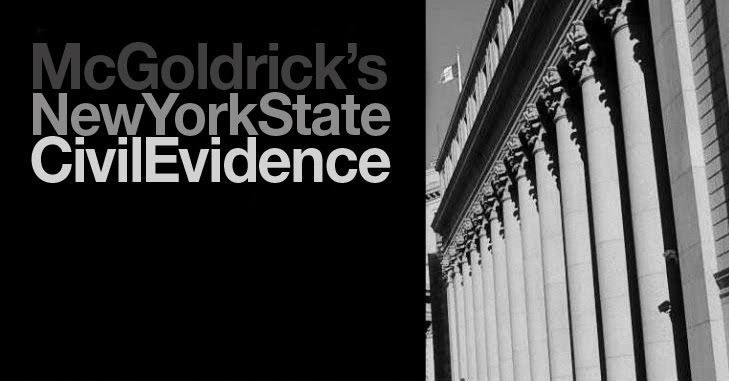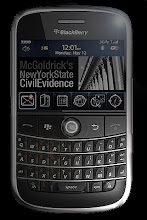"...the records are hearsay as they deprive respondent of the right to confront the witness. This Court agrees. The [father] refers to CPLR 4518(a). This section refers to business records, not doctors office records or notes."
CPLR 4518(a)
Generally. Any writing or record, whether in the form of an entry in a book or otherwise, made as a memorandum or record of any act, transaction, occurrence or event, shall be admissible in evidence in proof of that act, transaction, occurrence or event, if the judge finds that it was made in the regular course of any business and that it was the regular course of such business to make it, at the time of the act, transaction, occurrence or event, or within a reasonable time thereafter. An electronic record, as defined in section three hundred two of the state technology law, used or stored as such a memorandum or record, shall be admissible in a tangible exhibit that is a true and accurate representation of such electronic record. The court may consider the method or manner by which the electronic record was stored, maintained or retrieved in determining whether the exhibit is a true and accurate representation of such electronic record. All other circumstances of the making of the memorandum or record, including lack of personal knowledge by the maker, may be proved to affect its weight, but they shall not affect its admissibility. The term business includes a business, profession, occupation and calling of every kind.
On appeal, Appellate Division, Second Department held that the medical records, if mere physician office records and not medical expert opinion, would have been admissible if supported by the statutory foundation required under CPLR 4518(a) and despite the author of the records being available to testify in Matter of Fortunato v Murray (2010 NY Slip Op 03122):
"Contrary to the Family Court's general statement of the applicable law, "[a] physician's office records, supported by the statutory foundations set forth in CPLR 4518(a), are admissible in evidence as business records. However, medical reports, as opposed to day-to-day business entries of a treating physician, are not admissible as business records where they contain the doctor's opinion or expert proof" (Matter of Bronstein-Becher v Becher, 25 AD3d 796, 797 [internal quotation marks and citations omitted]; see Batts v Rutrick, 298 AD2d 417; Napolitano v Branks, 141 AD2d 705, 705-706). Moreover, a physician's office records "may be received as evidence despite the fact that a physician is available to testify as to the substance and contents of the records" (Napolitano v Branks, 141 AD2d at 705-706; see Clarke v New York City Tr. Auth., 174 AD2d 268). Here, upon the father's appeal of the Family Court's order, this Court does not have the benefit of the actual medical documents in dispute since the documents are not part of the original papers before this Court. Thus, from the record, it is unclear whether the subject documents were the type which this Court views as admissible. Accordingly, we remit the matter to the Family Court, Nassau County, for a review by the Support Magistrate of the subject medical documents in light of and pursuant to the aforementioned standard as to admissibility."

